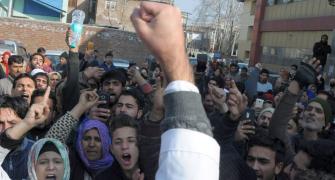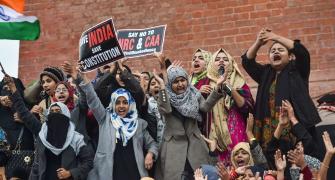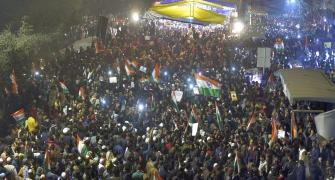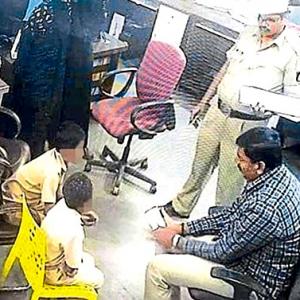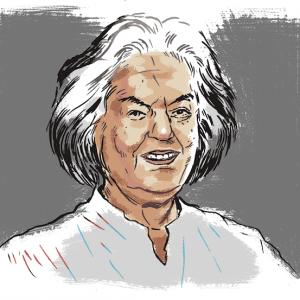'Do the Muslims of India think they are receiving justice from their nation and particularly from the Supreme Court?' asks Aakar Patel.
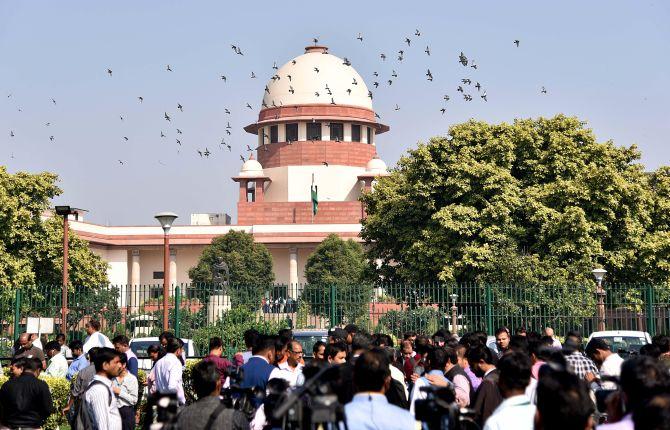
India's Supreme Court suo moto (on its own) wants to hear the matter of an infant dying after being brought to the Shaheen Bagh protests.
It also separately heard on Monday, February 10, the matter of the protests obstructing traffic.
The Supreme Court has not heard the matter where 25 protestors have been killed (I would say murdered) by the police.
The Supreme Court has not heard the matter where the government of UP has illegally begun to confiscate without process the property of protestors against the Citizenship (Amendment) Act.
The Supreme Court has not intervened in the matter of children being interrogated multiple times by police in Bidar because of a school play critical of Narendra Damodardas Modi.
The Supreme Court has not heard the matter of Kashmiri leaders being locked up without charge or trial. The Supreme Court has not given Kashmiris the right to use the Internet though it made some pious noises about this in January.
The Supreme Court has not stayed the CAA though the judges were told there is a danger that this has created serious turmoil and unrest.
The Supreme Court has not given justice to 1,000 people in Assam's concentration camps, who are jailed without crime, families separated with no way and no mechanism of getting out.
The Supreme Court has not intervened when the Modi government announced that all non-Muslims in these camps would be freed. Only the Muslims would remain in jail.
The Supreme Court has not heard the issue of when the Muslims among the 19 lakh people not included in Assam's National Register of Citizens will get the chance to prove their citizenship.
The Supreme Court has not heard the matter of the serious irregularities in the conduction of the Assam NRC. These include the BJP government's extension of two year contracts to those workers who declared maximum people illegal, and the Supreme Court has not heard the cases of those people who were declared foreigners because of spelling mistakes and differing dates in their documents.
The Supreme Court has taken away the land on which the Babri Masjid stood and given it to those who broke the mosque down. But it has not enforced the trials of those accused of breaking it. Lal Kishenchand Advani's case is still going on. He is in his 90s and the case is now almost three decades old.
The NRC and the NPR have been illegally linked together, but the Supreme Court has not heard that matter or thought it important to list. I could go on with this list, but I will stop here.
The fact is the Supreme Court of India shows in its conduct what it chooses to hear and what it chooses to not hear. In ordinary times, this would not be too much of a matter of concern.
But not at a time when the world is aghast at what India is doing to its own people, when millions of people are on the street to fight for survival, and in the fact of a government that is ideological and openly prejudiced.
The reputation of India as a rule of law country where minorities are protected has been thoroughly shredded by Modi and this government.
It is unthinkable that a majority of members of Europe's parliament would propose a resolution condemning an Indian law. But that is what External Affairs Minister Subrahmanyam Jaishankar will have to face when he goes to Brussels in a few days's time.
It is unthinkable that the United States Congress would have 59 legislators supporting a resolution demanding that India release Omar Abdullah and Mehbooba Mufti and return the Internet to the Kashmiris, but that is also what has happened.
Because they have taken on everything that interested them, India's Supreme Court judges have had to be increased from eight judges in 1950 to 31 in 2008. Today there are 33.
The Supreme Court is composed of one bench of the Chief Justice's court of three judges and 13 or 14 benches of two judges in 13 or 14 courtrooms sitting regularly day after day.
In no Supreme Court of other jurisdictions are there benches of 13 courts of two judges each as the Indian Supreme Court now has. The US supreme court, on which India's court is modelled, has only one bench of 12.
But is there any justice that is coming out of all these benches? The answer to this question should come from the people that the State is brutalising today.
Do the Muslims of India think they are receiving justice from their nation and particularly from the Supreme Court?
I cannot speak on their behalf, but if I had to guess, my answer would be a very firm no.
Aakar Patel is a writer and columnist.
You can read Aakar's earlier columns here.

